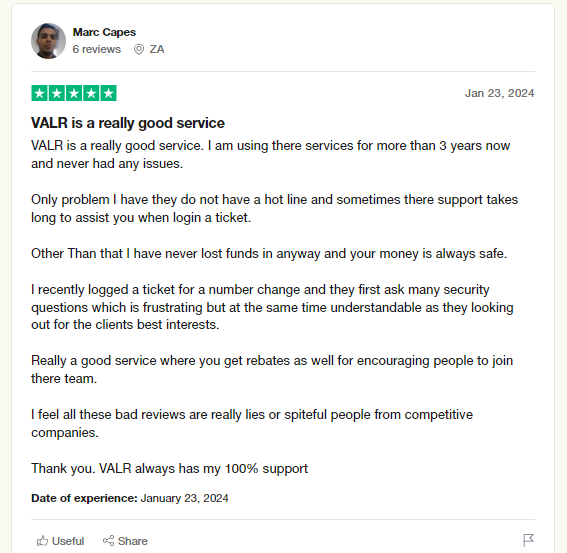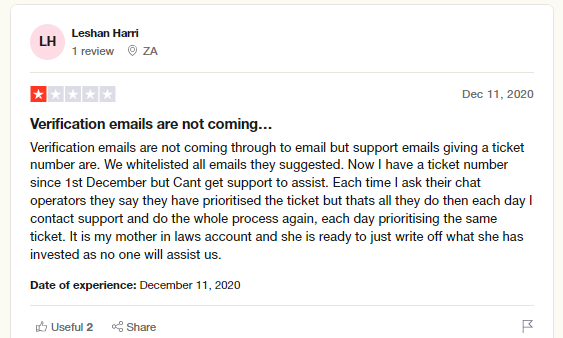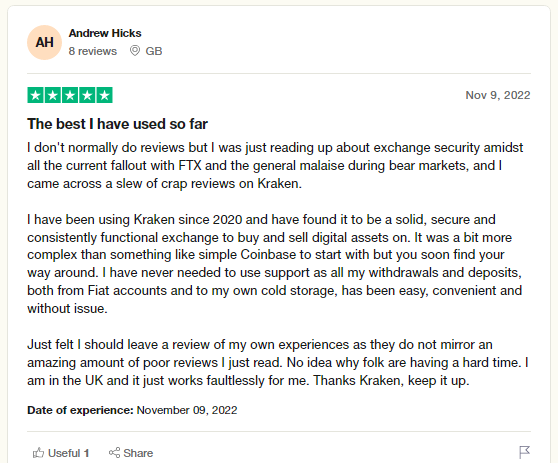
You’re interested in buying some cryptocurrency, but with so many exchanges out there, it’s tricky to know which one is best, right? Relax, I’ve got you covered.
As a South African, you want an exchange that’s tailored for the local market – one that’s easy to use, secure, and doesn’t charge an arm and a leg in fees. That’s why I’ve put together this review of the top crypto exchanges available here.
In this guide, you’ll find:
- The key factors to consider when selecting a crypto platform, from fees and security to user-friendliness and trading tools.
- Detailed breakdowns of five of the best crypto exchanges in South Africa, including pros, cons, and user reviews.
- Step-by-step instructions on how to actually sign up and get started with whichever exchange you pick
Let’s now find the perfect crypto exchange to suit your needs!
Best Crypto Exchanges in South Africa
Luno
Luno is one of the most trusted and well-established crypto exchanges in South Africa. Founded in 2013, it’s known for its user-friendly platform and strong focus on security and compliance.
- Supported cryptocurrencies: You can trade over 18 cryptos including Bitcoin, Ethereum, Litecoin, Ripple, and Bitcoin Cash.
- Trading fees: Luno charges a 1% fee for instant buy/sell orders, and 0.2% for exchange orders.
- Security features: Luno stores over 90% of customer funds in geographically distributed multisignature cold storage wallets. It also offers two-factor authentication and has undergone multiple security audits.
- User-friendliness and trading tools: Luno’s platform is designed for beginners, with a simple and intuitive interface. It offers educational resources and basic charting tools but lacks advanced trading features.
Advantages and Disadvantages
| Pros | Cons |
|---|---|
| ✅ Easy to use platform for beginners | 💸 Taker fee: 0.6% – Maker fee: 0.4% |
| 🔒 Over 90% of funds stored in cold storage wallets | 📉 Limited charting tools and basic order types |
| 🛡️ 2-factor authentication and security audits | |
| 🌍 Regulatory compliance in multiple countries |
User reviews: Generally positive as the screenshot below shows, with users praising Luno’s ease of use and security. Some complaints about customer support response times.

VALR
VALR is a South African cryptocurrency exchange launched in 2019, quickly gaining popularity among local traders with its advanced trading platform and diverse cryptocurrency offerings.
- Supported cryptocurrencies: Over 70 cryptocurrencies including Bitcoin, Ethereum, Litecoin, Ripple, and many altcoins.
- Trading fees: Fees range from 0.2% to 0.5% depending on trading volume and order type (maker/taker).
- Security features: VALR uses cold storage for the majority of customer funds, multi-signature wallets, and two-factor authentication.
- User-friendliness and trading tools: VALR offers a user-friendly web and mobile trading platform with advanced charting tools, order types, and indicators. It is good for both beginners and experienced traders.
Advantages and Disadvantages
| Pros | Cons |
|---|---|
| 🪙 Over 75 cryptocurrencies including major and altcoins | 📉 Founded in 2019, shorter track record than older exchanges |
| 💰 Low 0.01%- 0.03% trading fees based on volume | 🌐 Fewer user reviews compared to larger platforms |
| 📈 Advanced trading tools (charts, indicators, order types) | |
| 🌍 Regulated by South African’s FSCA |
User reviews: While not as many reviews as larger exchanges, the feedback on VALR from South African customers are also positive, praising its security and good services.

Binance
Binance is the world’s largest cryptocurrency exchange by trading volume and one of the most popular platforms among South African traders. Founded in 2017, it offers an extensive range of cryptocurrencies and trading pairs.
- Supported cryptocurrencies: Over 600+ cryptocurrencies including Bitcoin, Ethereum, Binance Coin (BNB), and a wide variety of altcoins.
- Trading fees: Trading fees on Binance start at 0.1% and can be reduced further by using BNB to pay fees or by achieving higher trading volumes.
- Security features: Binance stores the majority of user funds in air-gapped cold wallets and employs advanced security measures like two-factor authentication (2FA) and address whitelisting.
- User-friendliness and trading tools: Binance offers a user-friendly web and mobile trading platform with advanced charting tools, multiple order types, and margin trading. It’s suitable for both beginners and experienced traders.
Advantages and Disadvantages
| Pros | Cons |
|---|---|
| 🪙 Over 600 cryptocurrencies and trading pairs | 🖥️ Interface can be overwhelming for total crypto beginners |
| 💰 Lowest fees starting at 0.1% (reducible further) | 🌐 Not available in some restricted countries/regions |
| 🔒 Air-gapped cold wallets for fund storage | |
| 🌍 FSCA regulated |
User reviews: Binance enjoys overwhelmingly positive reviews from users, praising its liquidity, features, and security. However, some South African users like Leshan have reported issues with verification emails and customer support response times.

Bybit
Bybit is a cryptocurrency derivatives exchange founded in 2018, offering perpetual contracts and futures trading on a robust and user-friendly platform.
- Supported cryptocurrencies: Bitcoin, Ethereum, Solana, and other major cryptocurrencies. Focused on derivatives rather than spot trading.
- Trading fees: Bybit charges trading fees ranging from 0.01% to 0.075% for makers and takers, respectively, based on 30-day trading volumes.
- Security features: Bybit uses cold wallets, SSL encryption, and two-factor authentication (2FA) to protect user funds and data.
- User-friendliness and trading tools: The Bybit platform is designed for a seamless trading experience, with advanced charting tools, order types, and built-in trading indicators. It offers a user-friendly mobile app as well.
Advantages and Disadvantages
| Pros | Cons |
|---|---|
| 💰 Low 0.01%-0.075% trading fees based on volume | 🌱 May be too advanced for beginners just starting with crypto |
| 🖥️ User-friendly interface with charting tools/indicators | |
| 🤖 Built-in trading bots and strategies | |
| 🪙 Supports BTC, ETH, SOL and other major cryptos |
User reviews: Bybit receives generally positive reviews from users, who praise its trading platform, low fees, and customer support. Some complaints about platform downtime during periods of high volatility.

Kraken
Kraken is a long-standing and highly respected cryptocurrency exchange based in the United States, offering its services to traders worldwide, including South Africa.
- Supported cryptocurrencies: Over 90 cryptocurrencies including Bitcoin, Ethereum, Litecoin, and a wide range of altcoins.
- Trading fees: Kraken’s trading fees range from 0% to 0.26% depending on trading volume, with lower fees for market makers.
- Security features: Kraken is known for its robust security measures, including air-gapped cold storage, PGP/GPG encryption, and mandatory two-factor authentication (2FA).
- User-friendliness and trading tools: Kraken’s trading platform is designed for experienced traders, with advanced charting tools, order types, and margin trading. The interface can be overwhelming for beginners.
Advantages and Disadvantages
| Pros | Cons |
|---|---|
| 💰 Maker fees as low as 0%, high liquidity | 💸 0.26% taker fee for lower volume traders |
| 🔒 Air-gapped cold storage and mandatory 2FA | 🌱 Advanced trading interface not beginner-friendly |
| 🌍 Regulatory compliance in multiple countries | |
| 🪙 Supports over 90 cryptocurrencies |
User reviews: Kraken enjoys a strong reputation among users, with praise for its security, compliance, and liquidity. However, some clients have reported slow customer support response times.

Other Recommended Crypto Platforms
While we’ve covered some of the top crypto exchanges available in South Africa, there are a few other notable platforms worth mentioning:
Coinbase – One of the largest and most well-known crypto exchanges globally, Coinbase is also accessible to South African users. It offers a user-friendly platform and a wide range of cryptocurrencies but tends to have higher fees compared to some competitors.
OKX – Formerly known as OKEx, this popular cryptocurrency exchange offers spot and derivatives trading, with a focus on advanced trading tools and features for experienced traders.
Yellow Card – A fintech startup based in Nigeria, Yellow Card allows South Africans to buy and sell cryptocurrencies like Bitcoin using various local payment methods, making crypto more accessible for those without traditional banking access.
How to Choose the Right Crypto Exchange
With so many options available, choosing the right crypto exchange can be a daunting task. It’s essential to consider your specific needs and preferences when making a decision. Here are some key factors to keep in mind:
- Level of experience: If you’re a beginner, look for user-friendly platforms with educational resources and straightforward buy/sell options. More experienced traders may prioritize advanced trading tools and order types.
- Supported cryptocurrencies: Make sure the exchange offers the specific cryptocurrencies you want to trade.
- Fees: Fees are another important consideration, as they can quickly eat into your profits. Compare trading fees, withdrawal fees, and any other charges across different exchanges. Lower fees mean more money in your pocket, but don’t compromise on security or features for the sake of saving a few bucks.
- Security: Look for platforms that use cold storage (offline wallets) to protect the majority of user funds, as well as advanced security measures like two-factor authentication and encryption. A history of successful security audits is also a good sign.
- Regulation: Regulatory compliance and licensing with South Africa’s FSCA show that an exchange follows relevant laws and regulations, which can provide an additional layer of protection for users.
- User-friendliness and tools: User-friendliness and trading tools are crucial for a smooth trading experience, especially if you’re new to crypto. A well-designed platform with intuitive navigation, charting tools, and order types can make a big difference. Some exchanges even offer educational resources and customer support to help you along the way.
- Customer support: Finally, reliable customer support is essential in case you encounter any issues or have questions about the platform. Look for exchanges with responsive and knowledgeable support teams.
How to set up an account
Once you’ve narrowed down your options, here’s a step-by-step guide to setting up an account on your chosen exchange:
- Visit the exchange’s website and click on the “Sign Up” or “Register” button.
- Provide your personal information, such as name, email address, and create a strong password.
- Complete the identity verification process by submitting required documents (e.g., ID, proof of address).
- Enable two-factor authentication (2FA) for an additional security layer.
- Deposit funds into your account using one of the accepted payment methods (bank transfer, credit/debit card, etc.).
- Explore the trading platform, practice with demos or small amounts, and start trading once you feel comfortable.
Remember, it’s always a good idea to start small and never invest more than you can afford to lose. Thoroughly research and understand each exchange’s features, fees, and security measures before committing significant funds.
Conclusion
In this guide, we’ve explored some of the best cryptocurrency platforms available to traders in South Africa, including Luno, VALR, Binance, Bybit, and Kraken. Each exchange offers its unique features, strengths, and weaknesses, catering to different types of traders and their needs.
However, it’s crucial to understand that trading cryptocurrencies involves inherent risks, and choosing a reliable and secure exchange is paramount. Conducting thorough research, understanding security measures, and prioritizing reputable platforms can go a long way in protecting your investments.
Ultimately, there is no one-size-fits-all solution when it comes to choosing a crypto exchange. The “best” exchange for you will depend on your trading goals, experience level, and personal preferences. Some may prioritize user-friendliness and educational resources, while others may value advanced trading tools and a wide range of cryptocurrencies.
So, as you embark on your cryptocurrency journey, take the time to carefully evaluate your options, read reviews on TrustPilot, and understand the risks involved. Don’t hesitate to seek advice from experienced traders or consult with financial advisors if needed. Remember, investing wisely and prioritizing security can help you navigate the exciting yet volatile world of cryptocurrencies with confidence.
